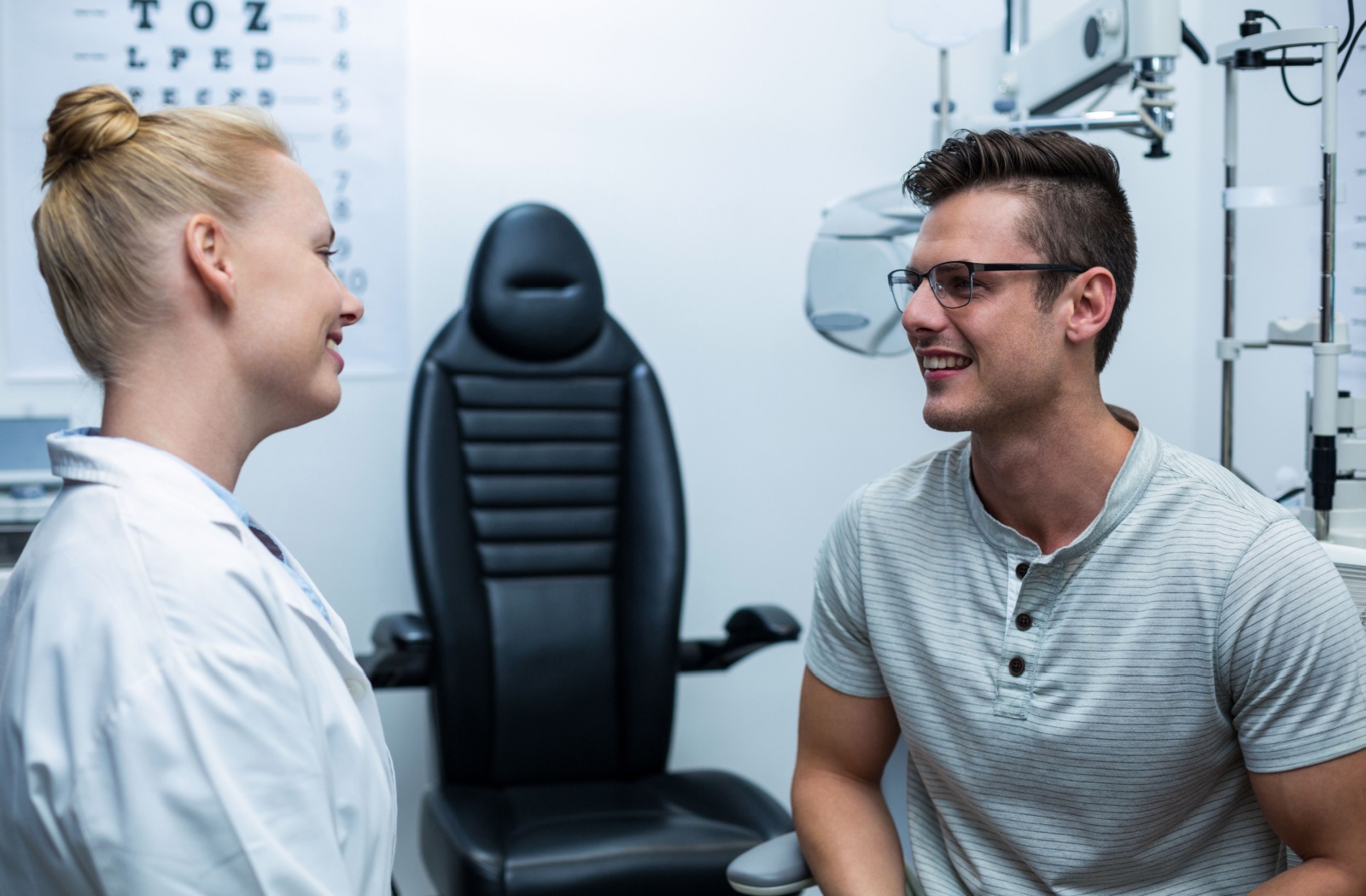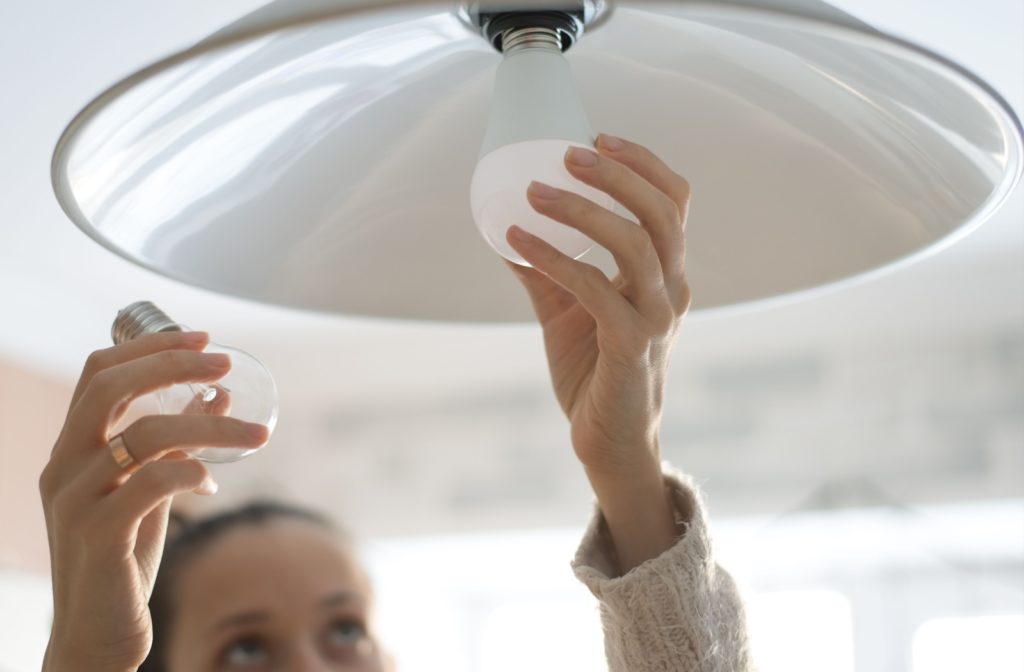We live in a technology-focused world. And with the usage of digital devices only rising, it’s almost impossible to avoid being exposed to LED lights like televisions, cell phones, overhead lighting, and more. But LED lights aren’t just convenient—they can affect you if you don’t take steps to properly protect your eyes. But are LED lights bad for your eyes, or is there more to it?
While LED lights can’t cause severe harm to your eyes, they do have an effect on your body’s natural sleep-wake cycle. They can suppress melatonin production, making it more difficult to sleep, which can have long-term effects if you aren’t careful. If you’re worried about the negative effects of LED lights, visit your optometrist to discuss potential solutions.
What Are LED Lights?
LED stands for “light-emitting diodes.” These are solid devices that convert electrical energy into light through a special conducting material. LEDs are often used in lighting for a simple reason; they’re extremely efficient and long-lasting compared to traditional light bulbs.
Because of their benefits, LEDs are used in almost everything. From lighting fixtures to billboards, and televisions to cell phones, it’s hard to go about your day without being exposed to LEDs in some way, shape, or form.
How Do LED Lights Affect the Eye?
Because LED lights have become so prominent, many people find themselves worried about the long-term health benefits of continual exposure.
LED lights primarily emit a wavelength called “blue light.” Over the years, the primary source of blue light has been the sun; we’ve evolved to associate exposure to blue light with the need to stay awake and be productive. To do so, our bodies suppress melatonin production when we’re exposed to blue light. This helps us stay awake.
For most of our history, this was never a problem. We could stay up throughout the day and handle our tasks. Then, when the sun sets and we’re not exposed to so much blue light, our body starts producing melatonin production again. This helps us relax and power down, so to speak. We can sleep uninterrupted and get ready for the next day.
Now that we’re exposed to blue light outside those key daylight hours, though, some people are worried about how blue light is affecting them.
Is Blue Light Dangerous?
On its own, blue light is not dangerous. You’re not damaging your eyes during your daily tasks.
But blue light does have a significant effect on our circadian rhythm. When you’re constantly exposed to digital devices and LED lights, your natural sleep cycle can be impacted. This becomes more true if you constantly find yourself using digital devices before sleeping; the constant LED exposure can suppress the melatonin you need to easily fall asleep.
Over time, this effect on your sleep cycle can lead to further problems. Long-term sleep deprivation is a serious concern that can lead to worsening health effects like:
- Decreased cognitive function and memory retention
- Increased risk of developing mental health issues such as anxiety and depression
- Higher likelihood of obesity and cardiovascular diseases
- Weakened immune system, making you more susceptible to infections
Fortunately, this is also preventable. It’s essential to create a proper routine before going to sleep and to take preventative measures when using devices—especially later in the day. This way, you’re able to prevent the negative effects of blue light and LEDs on your life.
Tips for Protecting Your Vision
Because blue light can have such a significant effect on your sleep cycle, preventative measures are key. It can help to create a proper sleep environment by:
- Making sure your sleep environment is comfortable, dark, and free of any irritating lights.
- Limiting screen exposure before bed. Try to avoid using any LED devices or screens for at least an hour before sleep to avoid affecting your natural melatonin production.
- Using blue light filters on your digital devices later in the day. Most modern cell phones, computers, and even televisions have a built-in filter that helps reduce the blue light being emitted.
- Use a pair of blue light glasses when using screens for long periods of time; these have a special filter built into them to prevent excessive amounts of blue light from reaching your eye.
- Taking regular breaks when using screens to help your eyes relax. Try to follow the 20/20/20 rule.
These strategies, though simple, can help you enjoy the benefits of modern devices without impacting your health or vision. It’s about more than just creating a comfortable environment; it’s about finding the right balance in your life to avoid the potential negative effects of technology.

What to Do if You’re Worried About LED Lights
If you’re worried about the potential problems associated with LED lights or blue light, come talk to our team at The Eye Gallery. Our team can give you up-to-date advice on properly protecting your eyes. We’re here to help, so book an appointment with us today!




